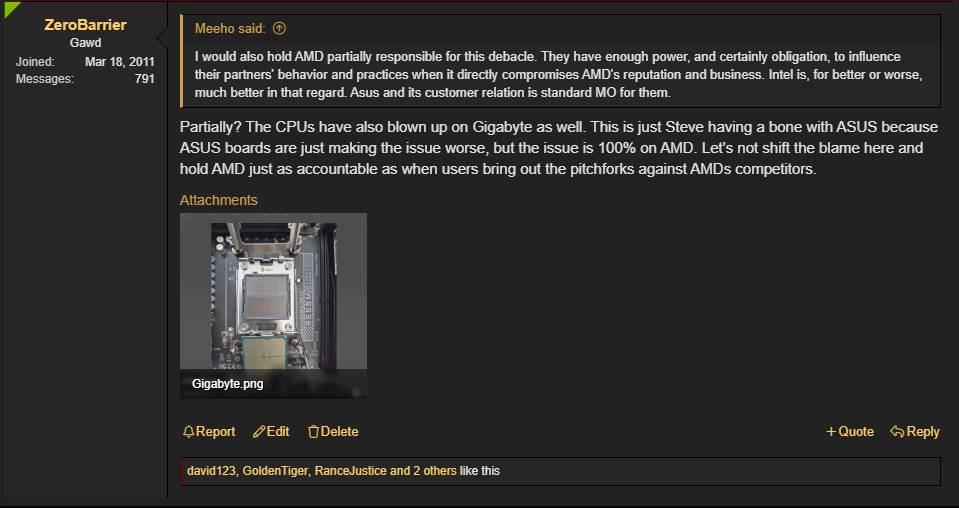ZeroBarrier
Gawd
- Joined
- Mar 19, 2011
- Messages
- 1,011
I'm no lover of ASUS products. I've had my fair share of good and really bad products from them, but it speaks volumes to me that Steve of all people pile on ASUS concerning this shit over AMD who is ultimately responsible for their CPUs catastrophically failing as they have. So I can fully believe techtuber collusion on more than just one way.wouldn't surprise me if some on this forum are on the ASUS take. why replace a $500 mobo when you can pay a shill with a free $100 mobo inventory excess for fake praise. we are now literally seeing youtube tech reviewer collusion theories... that aren't jokes
![[H]ard|Forum](/styles/hardforum/xenforo/logo_dark.png)


